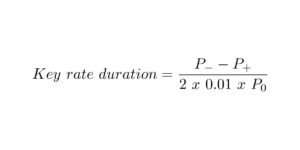What is kiting?
Kiting is the fraudulent use of a financial instrument to obtain additional credit that is not authorized. Kiting encompasses two main types of fraud:
- They are issuing or altering a check or bank draft for insufficient funds.
- You are misrepresenting the value of a financial instrument to extend credit obligations or increase financial leverage.
Check Kiting Involving Banks
Carried out within the banking system, kiting typically involves passing a series of checks at two or more banking institutions using accounts that have insufficient funds. Relying on the float time required for a check deposited at one bank to clear at another, the kiter typically writes a check at the first bank against an account at the other.
Before that check clears, they withdraw the funds from the second bank account and deposit them back into the first. The process may then be repeated in the opposite order, sometimes repeatedly. The net result is a series of fraudulent withdrawals that rely on being a step ahead of the fraudulent check on which they are based, having cleared. Reduced times for checks to clear have helped reduce the incidence of check kiting involving banks, as have such practices as banks placing holds on deposited funds and charging for returned checks.
Retail
A variant of check kiting is known as “retail kiting.” This relies on cashing a bad check (number one) at a retailer to purchase an item. Then, before that check has cleared, the kiter writes another check (number two), which may include (or entirely comprise) a cashback payment. While cashback is now most often associated with debit cards, some retailers still offer this convenience with checks.
The cash from check number two is then deposited into the account to allow check number one to clear. The fraud is then repeated to cover check number two and may be sustained to stay ahead of the float and fraudulently obtain a series of items and cash withdrawals.
Kiting With Securities
Kiting that involves misrepresenting securities generally occurs when securities firms flout SEC regulations regarding the timely delivery of buy-and-sell transactions, which must be completed within a three-day settlement period.
If a firm fails to receive the securities within that time frame, it must purchase the shortage on the open market and charge the delinquent firm for any associated fees.
The delinquent firm is considered to be practicing the fraudulent act of kiting if it fails to purchase the securities on the open market, maintains a short position, delays delivery, or participates in transactions contrary to the proper settlement of trades.
Conclusion
Kiting is the illegal use of financial tools to get more credit without paying for it.
Regarding getting securities on time, securities firms can “kite” if they don’t follow SEC rules.
Check kiting is when someone sends bad checks to banks or stores, sometimes from multiple accounts.












































